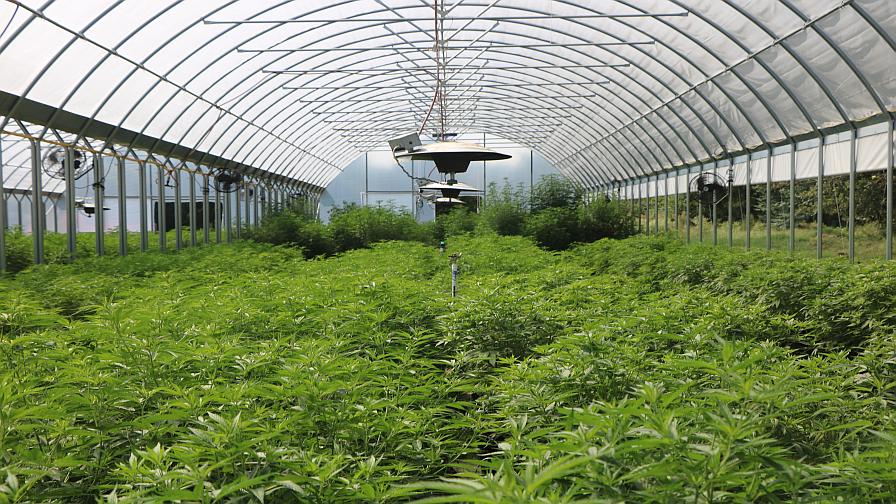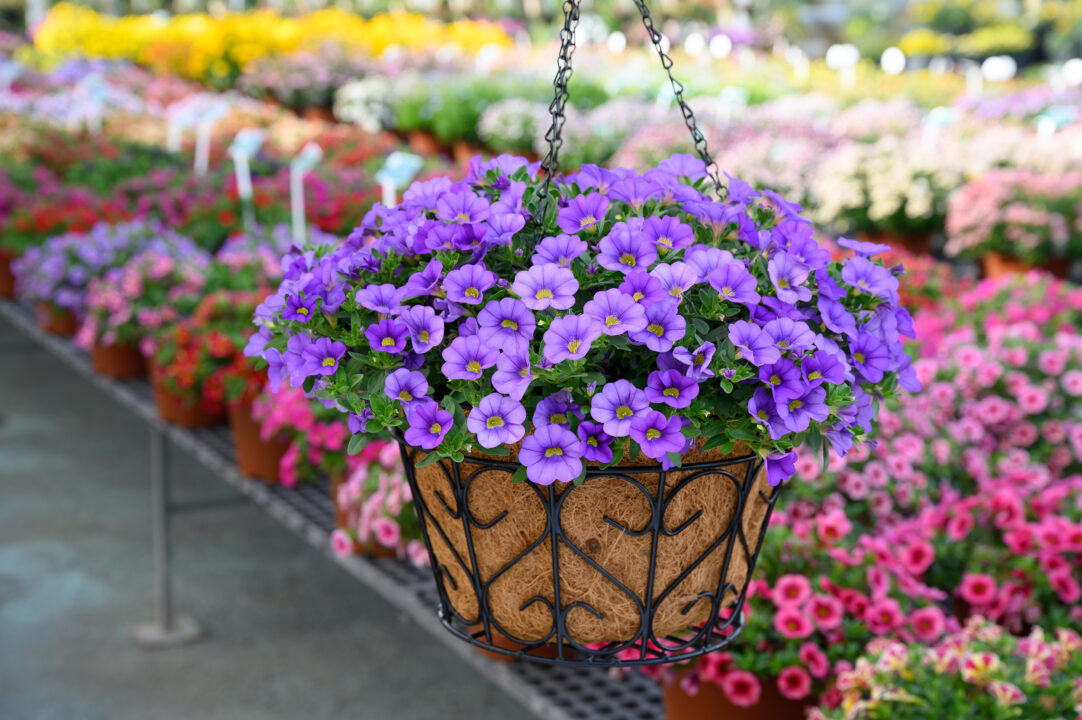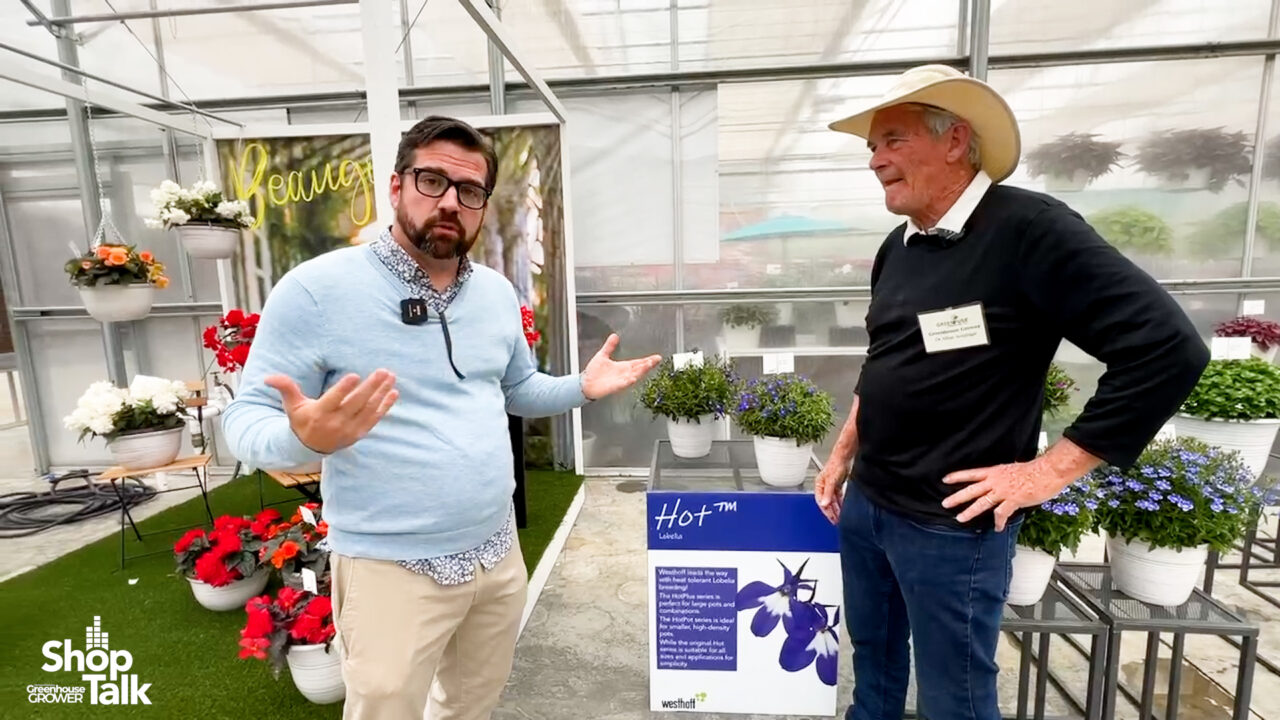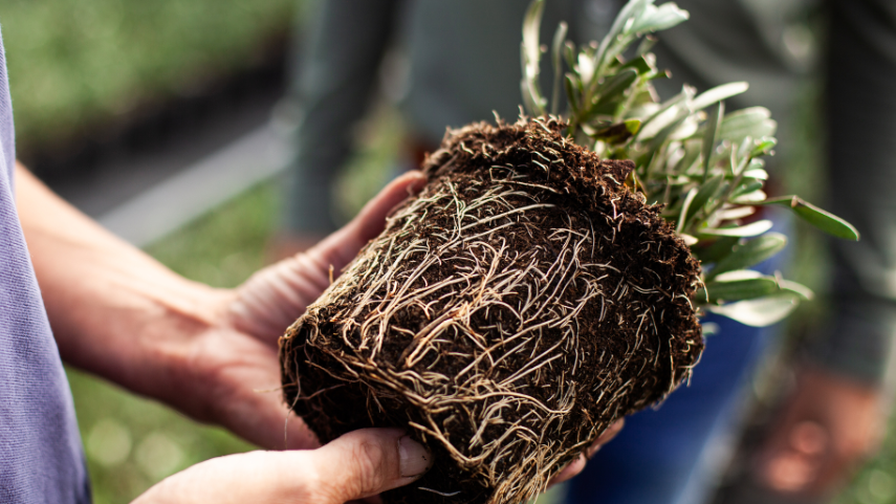State of the Horticulture Industry: Uncertainty, But Hope for a Strong Future
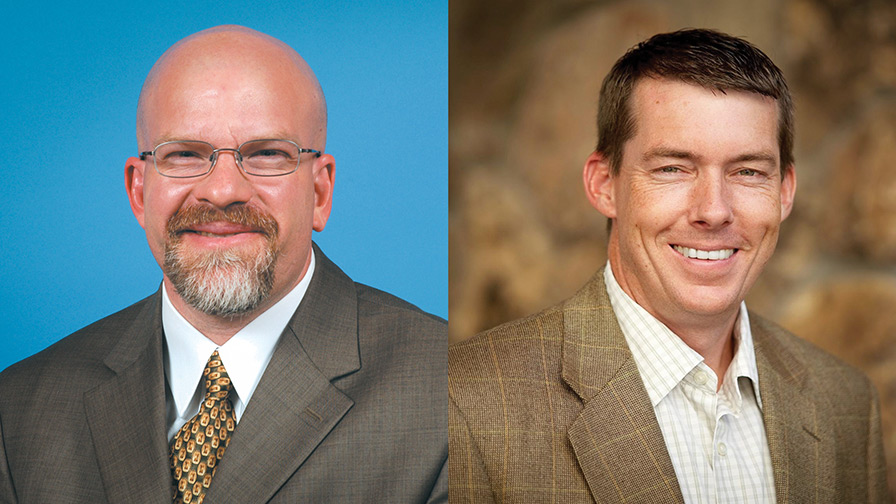
Charlie Hall and Craig Regelbrugge of AmericanHort delivered a state of the industry report at Cultivate’18.
If the theme of last year’s State of the Industry keynote address at Cultivate’17 was “great uncertainty,” then this year’s theme was “even greater uncertainty.” At least that is how Charlie Hall, AmericanHort’s Chief Economist, referred to our current industry climate.
Hall, along with AmericanHort’s President and CEO Ken Fisher and Senior Vice President Advocacy and Research Craig Regelbrugge, shared the stage in delivering Cultivate’18’s State of the Industry keynote address on Monday, July 16. Here are just a few of the themes that emerged from the presentations.
“Are You Hopeful?”
Fisher raised this question when he kicked off the morning, and answered it by explaining some of the activities AmericanHort is involved in to help the organization’s members become more optimistic about their future.
One step in positioning the horticulture industry for future relevance and profitability, Fisher said, is to provide a sales process that includes an easy path to online sales. Fisher also pushed for ways for the industry to attract more young individuals into horticulture, emphasizing its attraction as a viable career path.
Moving forward, Fisher noted that advocacy is critical.
“We need broader participation in our advocacy programs,” Fisher said. “AmericanHort has several resources you can use to make your voice heard.”
A Promising Future
Hall’s presentation focused on the current and future economic environment of the horticulture industry. Here are a few highlights from his presentation.
• “The tools that helped you survive the last recession aren’t the same ones that will help you in the future,” Hall said. “Consumer spending habits are more fluid than ever, and growers need to be able to adapt to this.”
• The most recent National Gardening Association survey offers a positive outlook for the future. “We have 95 million households participating in gardening, which is the highest number ever recorded by the survey,” Hall said. “What’s even better is that 18- to 34-year olds are spending more than they ever have.”
• Hall noted the efforts of industry organizations like the National Initiative for Consumer Horticulture, the Collegiate Plant Initiative, and Seed Your Future in educating younger people about the power of plants. “These groups will play a vital role in the future of our industry, and we need to do whatever we can to support them,” Hall said.
• Even with unemployment rates lower than ever, there are still millions of vacancies in jobs. “We don’t need to build a wall between us and Mexico, we need to charter buses from there,” Hall said.
• When will the next recession come? While nothing is certain or even imminent, Hall noted that by the time Cultivate’21 comes around, there’s roughly an 80% chance of a recession occurring, based on seasonal economic patterns. One cautionary note from Hall, however, is that trade wars can sometimes increase the likelihood of a recession.
Chaos on Capitol Hill?
Regelbrugge’s presentation focused on the political and regulatory environment, and as can be expected, it was also marked by a sense of unpredictability.
• In previewing what might happen in the 2018 mid-term elections, Regelbrugge said there is a high degree of enthusiasm among Democrats, similar to what occurred when the Tea Party movement emerged a few years ago. While Republicans currently control both chambers of Congress, there is the potential for a swing this year that could significantly change the checks and balances system in Washington.
• The most optimistic news concerning the policies AmericanHort has prioritized might come from the Farm Bill. “Both the House and Senate versions of the Farm Bill look promising when it comes to research funding,” Regelbrugge said. “We’re hopeful that a final version of the bill will be ready by the end of summer, and will maintain this funding.”
• It goes without saying that labor is the single most important issue the industry is facing, and when it comes to the Trump administration, the outlook is cloudy. “We feel like Agriculture Secretary Sonny Perdue fully understands our needs as an industry,” Regelbrugge said, noting in particular the efforts, likely driven by Perdue, to make the H-2A program more efficient.
However, for every horticulture friend on Capitol Hill, Regelbrugge said there’s a potential foe.
“These would be the people who make the argument that it is your job to find Americans who are willing to do the jobs at your company,” Regelbrugge said. “You may like some of this administration’s deregulatory proposals, but its stance on labor has the chance to really hurt our future.”
• Regelbrugge closed his presentation by reflecting on the Immigration and Customs Enforcement raid of Corso’s Perennials in Ohio. “One thing we can learn from this is that we are all vulnerable to something similar happening at our companies,” Regelbrugge said. “This means it’s more important than ever to review your I-9 documentation policies, and develop a contingency plan that can help you stay afloat if the same thing happens to you.”





